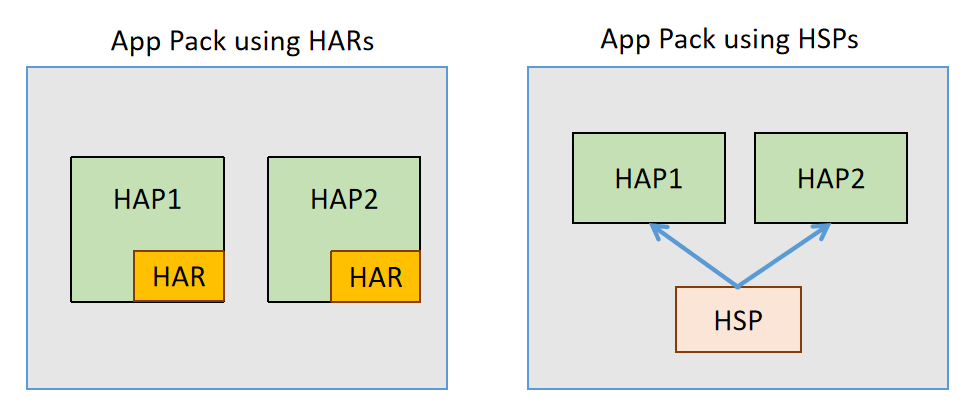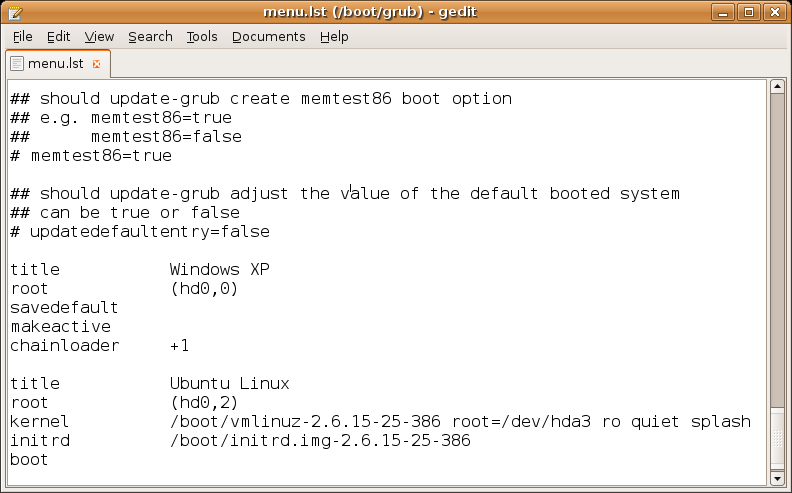|
App (file Format)
The HarmonyOS App Pack or the App file, identified with the file extension ".app", serves as the file format used by the HarmonyOS operating system. It functions as a native HarmonyOS app for distribution and installation through Huawei AppGallery, or for distribution through Huawei Ability Gallery in respect of installation-free apps. The App file is also used by a number of other open source HarmonyOS-based operating systems such as OpenHarmony and Oniro OS-based operating systems for distribution and installation of applications, video games and middleware. Including non OpenHarmony-based operating systems, such as GNU Linux-based Unity Operating System that supports the app file format. Each HarmonyOS app contains one or more HarmonyOS Ability Package (HAP) files with the file extension ".hap", and the pack.info file that describes the attributes of the App file. Most HarmonyOS apps contain at least one HAP file of the entry type, which is the main module of the app, an ... [...More Info...] [...Related Items...] OR: [Wikipedia] [Google] [Baidu] |
Huawei
Huawei Technologies Co., Ltd. ( ; ) is a Chinese multinational technology corporation headquartered in Shenzhen, Guangdong, China. It designs, develops, produces and sells telecommunications equipment, consumer electronics and various smart devices. The corporation was founded in 1987 by Ren Zhengfei, a former officer in the People's Liberation Army (PLA). Initially focused on manufacturing phone switches, Huawei has expanded its business to include building telecommunications networks, providing operational and consulting services and equipment to enterprises inside and outside of China, and manufacturing communications devices for the consumer market. Huawei has deployed its products and services in more than 170 countries and areas. It overtook Ericsson in 2012 as the largest telecommunications equipment manufacturer in the world, and overtook Apple in 2018 as the second-largest manufacturer of smartphones in the world, behind Samsung Electronics. In 2018, Huawei repor ... [...More Info...] [...Related Items...] OR: [Wikipedia] [Google] [Baidu] |
Linux
Linux ( or ) is a family of open-source Unix-like operating systems based on the Linux kernel, an operating system kernel first released on September 17, 1991, by Linus Torvalds. Linux is typically packaged as a Linux distribution, which includes the kernel and supporting system software and libraries, many of which are provided by the GNU Project. Many Linux distributions use the word "Linux" in their name, but the Free Software Foundation uses the name "GNU/Linux" to emphasize the importance of GNU software, causing some controversy. Popular Linux distributions include Debian, Fedora Linux, and Ubuntu, the latter of which itself consists of many different distributions and modifications, including Lubuntu and Xubuntu. Commercial distributions include Red Hat Enterprise Linux and SUSE Linux Enterprise. Desktop Linux distributions include a windowing system such as X11 or Wayland, and a desktop environment such as GNOME or KDE Plasma. Distributions intended for ... [...More Info...] [...Related Items...] OR: [Wikipedia] [Google] [Baidu] |
JSON
JSON (JavaScript Object Notation, pronounced ; also ) is an open standard file format and data interchange format that uses human-readable text to store and transmit data objects consisting of attribute–value pairs and arrays (or other serializable values). It is a common data format with diverse uses in electronic data interchange, including that of web applications with servers. JSON is a language-independent data format. It was derived from JavaScript, but many modern programming languages include code to generate and parse JSON-format data. JSON filenames use the extension .json. Any valid JSON file is a valid JavaScript (.js) file, even though it makes no changes to a web page on its own. Douglas Crockford originally specified the JSON format in the early 2000s. He and Chip Morningstar sent the first JSON message in April 2001. Naming and pronunciation The 2017 international standard (ECMA-404 and ISO/IEC 21778:2017) specifies "Pronounced , as in ' Jaso ... [...More Info...] [...Related Items...] OR: [Wikipedia] [Google] [Baidu] |
HarmonyOS Shared Packages
HarmonyOS (HMOS) () is a distributed operating system developed by Huawei to collaborate and interconnect with multiple smart devices on the Internet of Things (IoT) ecosystem. In its current multi-kernel design, the operating system selects suitable kernels from the abstraction layer for devices with diverse resources. For IoT devices, the system is known to be based on LiteOS kernel; while for smartphones and tablets, it is based on a Linux kernel layer with AOSP compatibility libraries to support legacy APK apps, in addition to native HarmonyOS HAP apps via the Ark Compiler. The system includes a communication base DSoftBus for integrating physically separate devices into a virtual Super Device, allowing one device to control others and sharing data among devices with distributed communication capabilities. It supports several forms of apps, including the apps that can be installed from AppGallery on smartphones and tablets, installation-free Quick apps and lightweight A ... [...More Info...] [...Related Items...] OR: [Wikipedia] [Google] [Baidu] |
Debugging
In computer programming and software development, debugging is the process of finding and resolving ''bugs'' (defects or problems that prevent correct operation) within computer programs, software, or systems. Debugging tactics can involve interactive debugging, control flow analysis, unit testing, integration testing, log file analysis, monitoring at the application or system level, memory dumps, and profiling. Many programming languages and software development tools also offer programs to aid in debugging, known as '' debuggers''. Etymology The terms "bug" and "debugging" are popularly attributed to Admiral Grace Hopper in the 1940s. While she was working on a Mark II computer at Harvard University, her associates discovered a moth stuck in a relay and thereby impeding operation, whereupon she remarked that they were "debugging" the system. However, the term "bug", in the sense of "technical error", dates back at least to 1878 and Thomas Edison who describes the ... [...More Info...] [...Related Items...] OR: [Wikipedia] [Google] [Baidu] |
Configuration File
In computing, configuration files (commonly known simply as config files) are files used to configure the parameters and initial settings for some computer programs. They are used for user applications, server processes and operating system settings. Some applications provide tools to create, modify, and verify the syntax of their configuration files; these sometimes have graphical interfaces. For other programs, system administrators may be expected to create and modify files by hand using a text editor, which is possible because many are human-editable plain text files. For server processes and operating-system settings, there is often no standard tool, but operating systems may provide their own graphical interfaces such as YaST or debconf. Some computer programs only read their configuration files at startup. Others periodically check the configuration files for changes. Users can instruct some programs to re-read the configuration files and apply the changes to the c ... [...More Info...] [...Related Items...] OR: [Wikipedia] [Google] [Baidu] |
Library (computing)
In computer science, a library is a collection of non-volatile resources used by computer programs, often for software development. These may include configuration data, documentation, help data, message templates, pre-written code and subroutines, classes, values or type specifications. In IBM's OS/360 and its successors they are referred to as partitioned data sets. A library is also a collection of implementations of behavior, written in terms of a language, that has a well-defined interface by which the behavior is invoked. For instance, people who want to write a higher-level program can use a library to make system calls instead of implementing those system calls over and over again. In addition, the behavior is provided for reuse by multiple independent programs. A program invokes the library-provided behavior via a mechanism of the language. For example, in a simple imperative language such as C, the behavior in a library is invoked by using C's normal func ... [...More Info...] [...Related Items...] OR: [Wikipedia] [Google] [Baidu] |
DevEco Studio
DevEco Studio is the official integrated development environment (IDE) for Huawei's HarmonyOS operating system, built on JetBrains' IntelliJ IDEA software and Huawei's SmartAssist designed specifically for HarmonyOS development. It is available for download on Microsoft Windows and macOS based operating systems. History DevEco Studio was launched on September 9, 2020, a day before Huawei Developer Conference 2020 (HDC 2020) as the first stable build starting from version 1.0 for Huawei Vision TVs on HarmonyOS 1 and HarmonyOS 2 Beta versions for phones, tablets and watches in app development via Ark Compiler. DevEco Studio 2.1 was released on June 4, 2021 with cross-device project templates, atomic service development and other features with HarmonyOS 2.0 SDK for HarmonyOS 2 that was launched on June 2, 2021. On July 2021, Huawei launched sdkmgr, a new HarmonyOS SDK management tool. On July 8, 2022, after the following release of DevEco Studio 3.0 Beta 4 JS/eTS declarative pr ... [...More Info...] [...Related Items...] OR: [Wikipedia] [Google] [Baidu] |
Debian
Debian (), also known as Debian GNU/Linux, is a Linux distribution composed of free and open-source software, developed by the community-supported Debian Project, which was established by Ian Murdock on August 16, 1993. The first version of Debian (0.01) was released on September 15, 1993, and its first stable version (1.1) was released on June 17, 1996. The Debian Stable branch is the most popular edition for personal computers and servers. Debian is also the basis for many other distributions, most notably Ubuntu. Debian is one of the oldest operating systems based on the Linux kernel. The project is coordinated over the Internet by a team of volunteers guided by the Debian Project Leader and three foundational documents: the Debian Social Contract, the Debian Constitution, and the Debian Free Software Guidelines. New distributions are updated continually, and the next candidate is released after a time-based freeze. Since its founding, Debian has been developed op ... [...More Info...] [...Related Items...] OR: [Wikipedia] [Google] [Baidu] |
Microsoft Windows
Windows is a group of several Proprietary software, proprietary graphical user interface, graphical operating system families developed and marketed by Microsoft. Each family caters to a certain sector of the computing industry. For example, Windows NT for consumers, Windows Server for servers, and Windows IoT for embedded systems. Defunct Windows families include Windows 9x, Windows Mobile, and Windows Phone. The first version of Windows was released on November 20, 1985, as a graphical operating system shell for MS-DOS in response to the growing interest in graphical user interfaces (GUIs). Windows is the most popular desktop operating system in the world, with Usage share of operating systems, 75% market share , according to StatCounter. However, Windows is not the most used operating system when including both mobile and desktop OSes, due to Android (operating system), Android's massive growth. , the most recent version of Windows is Windows 11 for consumer Personal compu ... [...More Info...] [...Related Items...] OR: [Wikipedia] [Google] [Baidu] |
Universal Windows Platform Apps
Universal Windows Platform (UWP) apps (formerly Windows Store apps and Metro-style apps) are applications that can be used across all compatible Microsoft Windows devices, including personal computers (PCs), tablets, smartphones, Xbox One, Microsoft HoloLens, and Internet of Things. These are primarily purchased and downloaded via the Microsoft Store. Nomenclature Starting with Windows 10, Windows initially used "Windows app" to refer to a UWP app. Any app installed from Microsoft Store (formerly Windows Store) was initially "Trusted Windows Store app" and later "Trusted Microsoft Store apps." Other computer programs running on a desktop computer are "desktop apps." Starting with Windows 10 1903, Windows indiscriminately refers to all of them as "Apps." The terms "Universal Windows Platform" (or "UWP") and "UWP app" only appear on Microsoft documentation for its developers. Microsoft started to retrospectively use " Windows Runtime app" to refer to the precursors of UWP app, ... [...More Info...] [...Related Items...] OR: [Wikipedia] [Google] [Baidu] |

.jpg)
.jpg)




.png)